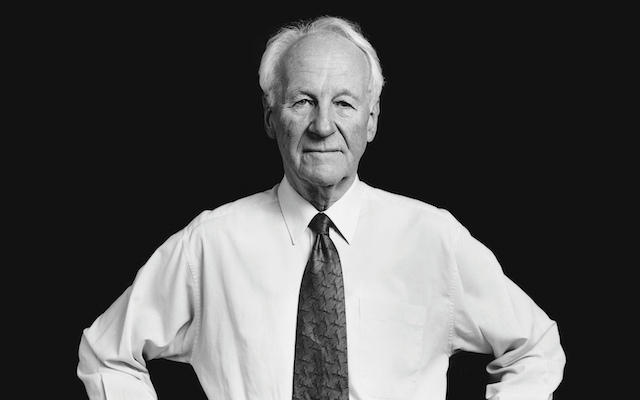I am constantly living vicariously through the stories Kenton Beshore tells me about his time with John Stott. Kenton, my predecessor and the pastor emeritus at Mariners Church, was mentored by Stott. While I have Stott’s books on my shelves, Kenton has pictures of him and Stott together. While I quote Stott’s books, Kenton showed me a place he took Stott for bird watching, a hobby John Stott enjoyed. The first time I asked Kenton about his relationship with Stott, he teared up as he spoke affectionately of Stott’s influence.
I have been re-reading some of Stott’s work and found his writing on social justice and the gospel helpful in light of recent discussions. There has been some debate among leaders about the role Christians should play in social justice – in working to help people, image-bearers of God, to be treated right and fair. Some say believers must engage in social justice. Others insist it can become a distraction from evangelism, from announcing the gospel to people.
We don’t have to wonder what John Stott would say about the recent debate on the role of Christians and social justice. In his classic work Christian Mission in the Modern World, John Stott offers three main ways Christians have attempted to understand the relationship between evangelism and social justice.
View One: Social Action as a Means to Evangelism
Those who adopt this approach applaud social justice that springboards into evangelism. Stott does not hide his disapproval with this view: “In its most blatant form this makes social work (whether food, medicine, or education) the sugar on the pill, the bait on the hook, while in its best form it gives to the gospel a credibility it would otherwise lack. In either case the smell of hypocrisy hangs round our philanthropy.” He did not want Christians to view social action as merely a tool that gives way to sharing the gospel.
View Two: Social Action as a Manifestation of Evangelism
Just as Christ’s “words and deeds belonged to each other, the words interpreting the deeds and the deeds embodying the words,” those who adopt this view see social action as an example of the gospel that is being proclaimed. Stott expressed discomfort with this view too because the social action is done with the spirit of expecting a return.
View Three: Social Justice as a Partner of Evangelism
The third view is Stott’s view, which is social action is a partner of evangelism. “As partners,” Stott writes, “the two belong to each other and yet are independent of each other. Both are expressions of unfeigned love… To see need and possess the remedy compels love to act, and whether the action will evangelistic or social, or indeed political, depends on what we see and what we have.” He continues later, “There will be times when a person’s material need is so pressing that he would not be able to hear the gospel if we shared it with him. The man who feel among robbers needed above all else at that moment oil and bandages for his wounds, not evangelistic tracts in his pockets.”
Stott’s summary statement is compelling: “We are sent into the world, like Jesus, to serve. And in this we should have no ulterior motive. True, the gospel lacks visibility if we merely preach it, and lacks credibility if we who preach it are only interested in souls and have no concern about the welfare of people’s bodies, situations, and communities. Yet the reason for our acceptance of social responsibility is not primarily to give the gospel visibility or credibility it would otherwise lack but simple uncomplicated compassion. Love has no need to justify itself. It merely expresses itself in service wherever it sees need.”
Picture by Brett Jordan





